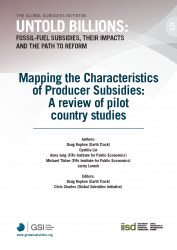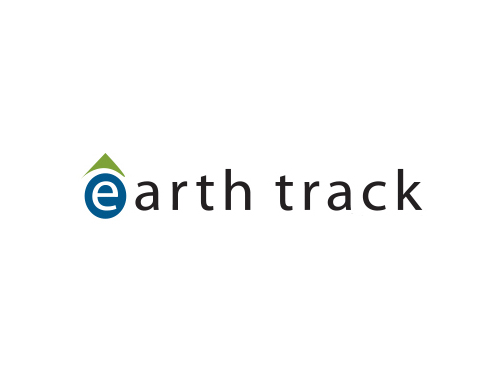Subsidy measurement is a pre-requisite to any effective program of subsidy reform, whether through the WTO, the G20, or domestic policy initiatives. Too often, policy makers take accurate and comprehensive subsidy measurement as a given. It isn't. In fact, making subsidies difficult to measure can be part of a political strategy to slow or block reform. It is no accident that subsidy mechanisms able to transfer value without easily-tracked government cash flows are popular -- purchase mandates, tax breaks and loan guarantees are examples. 
In light of the growing recognition that fossil fuel subsidy reform needs to occur in tandem with efforts to constrain carbon through taxes or caps, and that information on producer subsidies is often lacking, Earth Track teamed up with the Global Subsidies Initiative in Geneva to evaluate the availability of subsidy data in four case study countries. The FiFo Institute of Public Economics at the University of Cologne, and two independent energy researchers also supported the effort.
While we did identify a number of fossil fuel subsidies, the focus of this research was on data availability, examinining how information varied across subsidy types and countries. The result of this effort, Mapping the Characteristics of Producer Subsidies: A review of pilot country studies has just been released. The report provides an overview of data availability for each country, along with a more detailed subsidy data review in template form that includes url links to source materials.
Case studies of subsidy data availability were done for China, Germany, Indonesia, and the United States. The countries were chosen to model data availability under a variety of conditions: energy market importance, type of governance, and levels of transparency. The project team hopes that others will replicate this work in a broader array of countries, and that the data review can be used to produce a detailed analysis of fossil fuels within the case study countries in the near future.
Among the key findings:
- Standardized review highlights data gaps, ensures systematic assessment of policies. Many prior energy policy reviews have focused on the information that is most available within each country. While intuitive, this approach may miss some of the most important subsidy policies, often less visible and that may never have been quantified. To overcome this limitation, it is critical to use a standardized template of subsidy mechanisms, and for researchers to systematically assess each type of policy. In addition to ensuring no types of subsidies are skipped, the template clearly highlights data gaps. Some training of researchers so they become comfortable with less familiar transfer mechanisms will be needed.
- Evaluation team requires mix of skills. Accessing data proved to be quite difficult in countries with limited transparency. The research requires a mixture of expertise to carry out successfully. First, policy-type expertise is needed in order to evaluate complex subsidy mechanisms across countries. Second, strong local knowledge of language, cultural operating norms, and governance structure is needed within each country in order to effectively navigate domestic data sources and bureaucracies.
- General transparency aligns with accessibility of subsidy data. Countries with a variety of mechanisms supporting data disclosure (e.g., private capital markets; audited financial statements even for public institutions; mandatory reporting and publication of detailed budgets, tax expenditures and credit subsidies; and public liability and rights to litigate) had better information in each category of subsidy than those countries without a culture of transparency. The deficit can be partly addressed in less transparent countries by using more researchers with larger budgets. Fully addressing the gaps, however, may not occur until the country itself views subsidy transparency as benefitting its own broader interests rather than harming them. Building this case will be important, and will likely encompass fiscal, trade, environmental, and competiveness elements.
- Complex subsidy mechanisms had relatively worse data in all case study countries. Though more transparent countries generally had more comprehensive and accessible subsidy data than less transparent countries in all categories, the relative quality of data within countries showed similar patterns. For example, data on tax expenditures, credit subsidies, purchase mandates, and subsidies through government-owned enterprises were of relatively worse quality than direct expenditures in all countries evaluated.
- Sub-national subsidy data lacking in most cases. Subsidy policies at the sub-national level (state/province, country, municipality) were poorly characterized and quantified in nearly all cases.
- Producer subsidies are significant even in developing world. Conventional wisdom notes that the developing world primaily subsidizes fossil fuel consumers while the developed world primarily subsidizes producers. Our case studies indicate that producer subsidies are also pervasive in the developing world.




